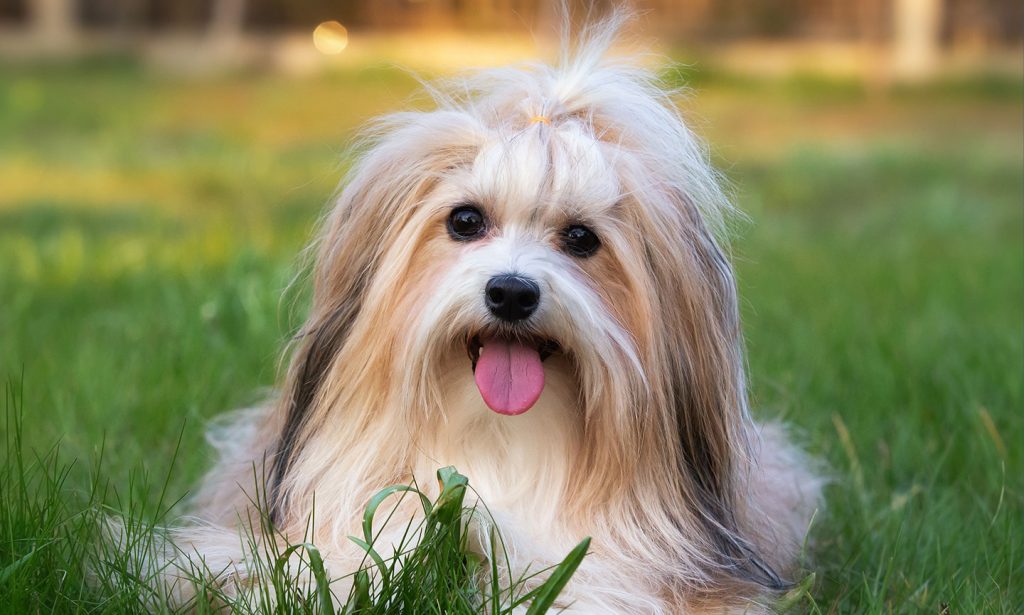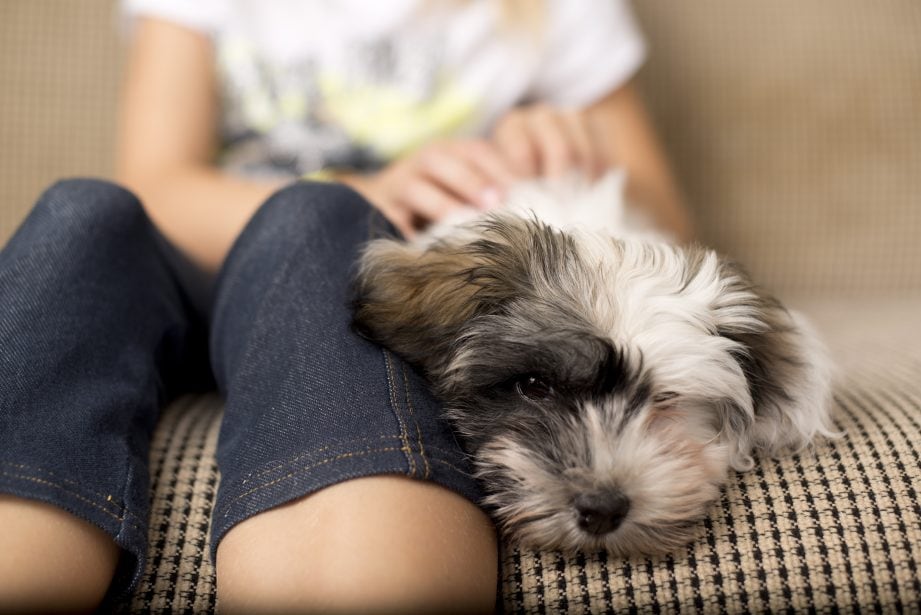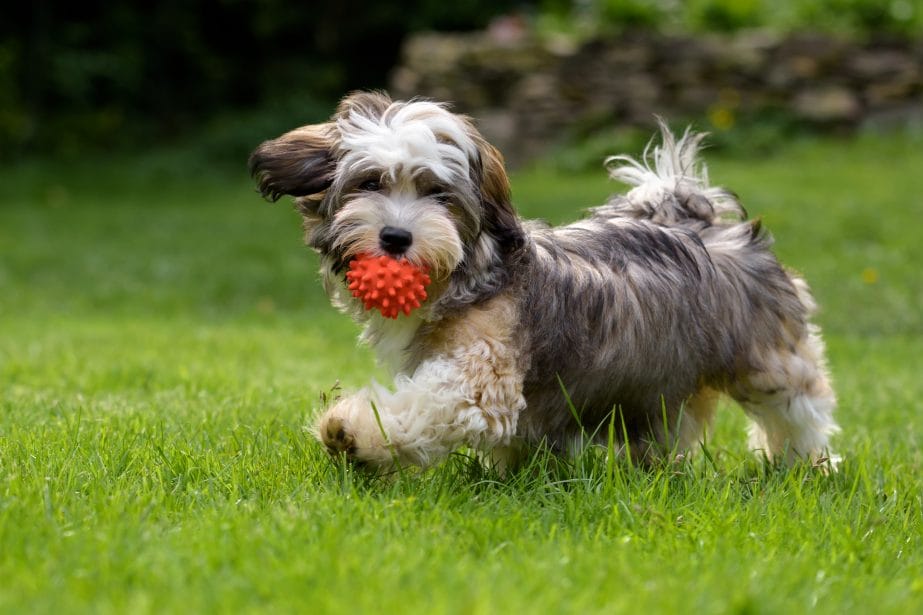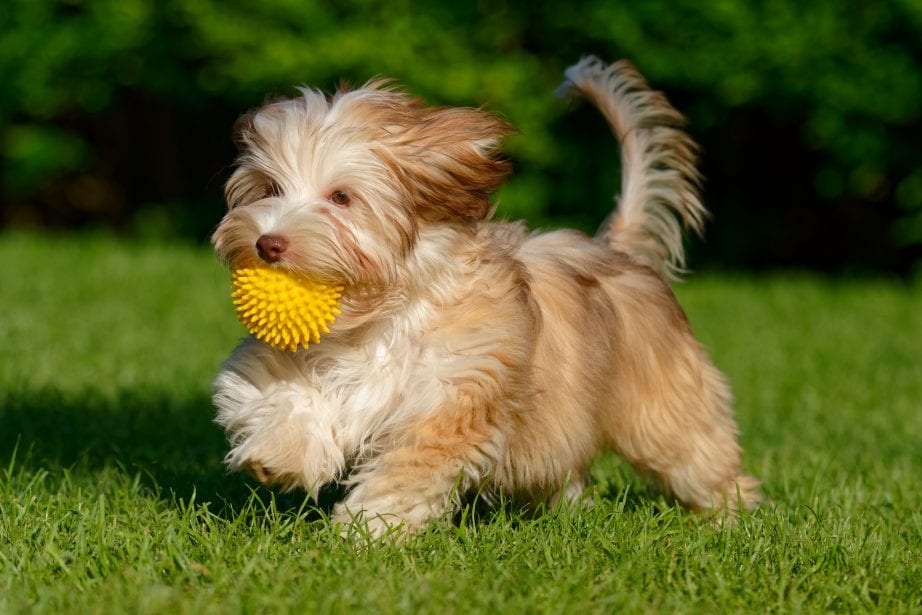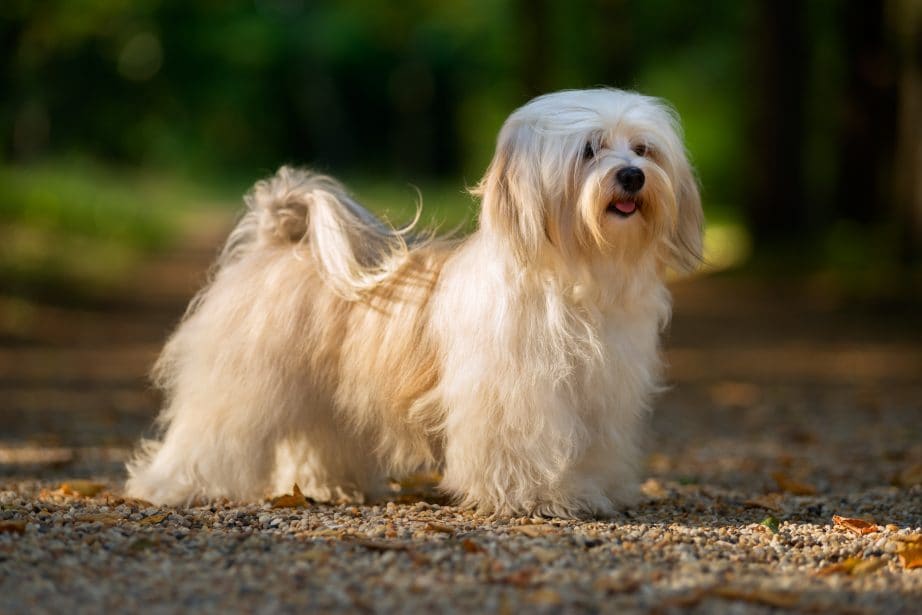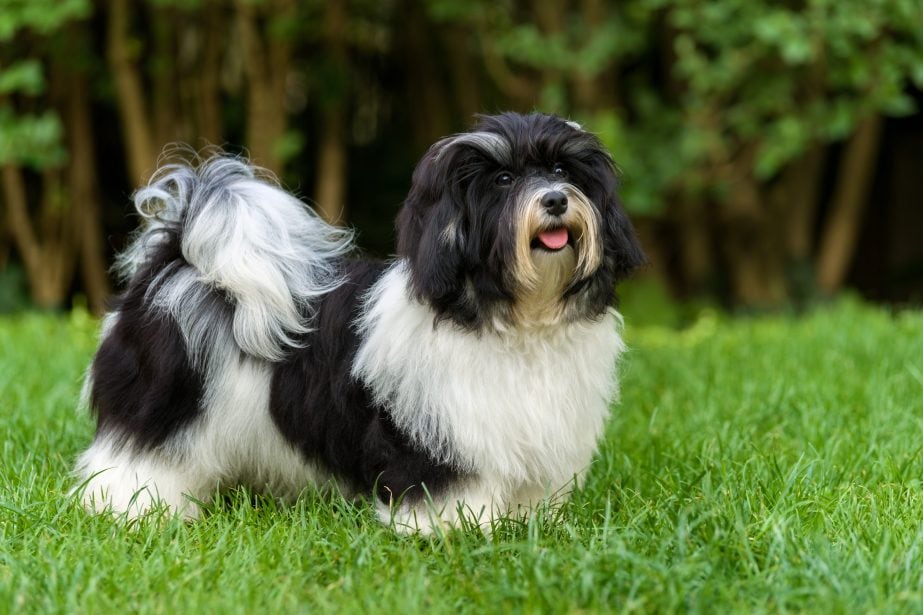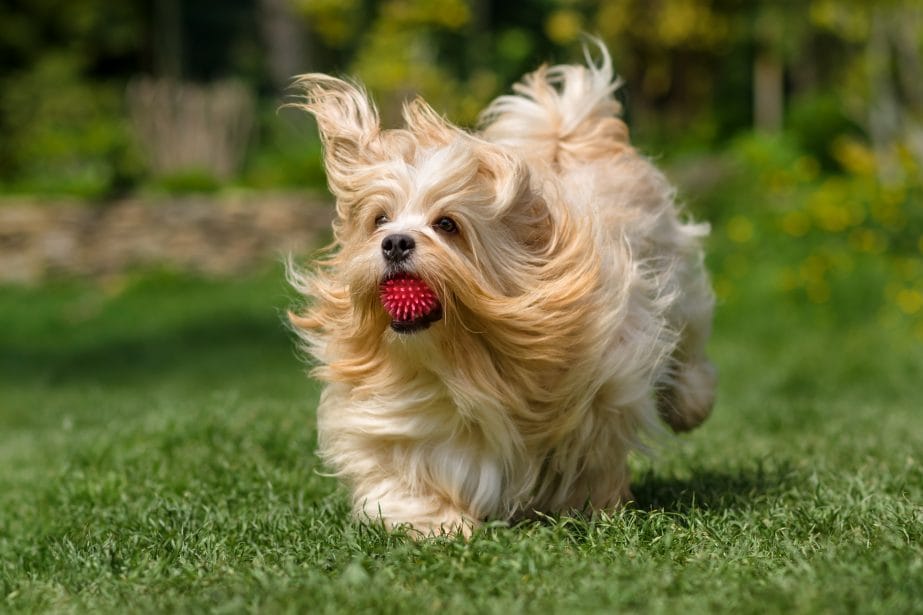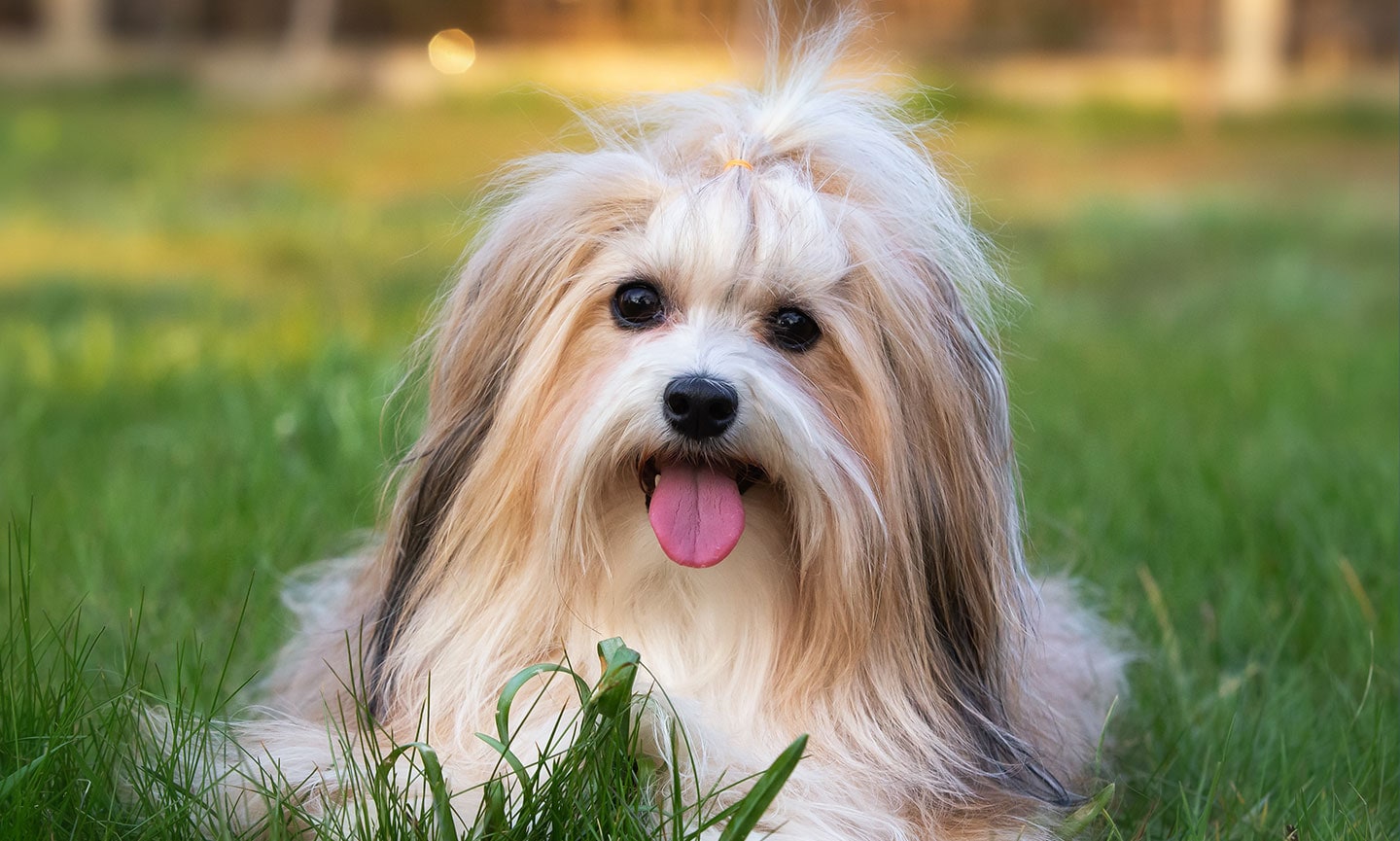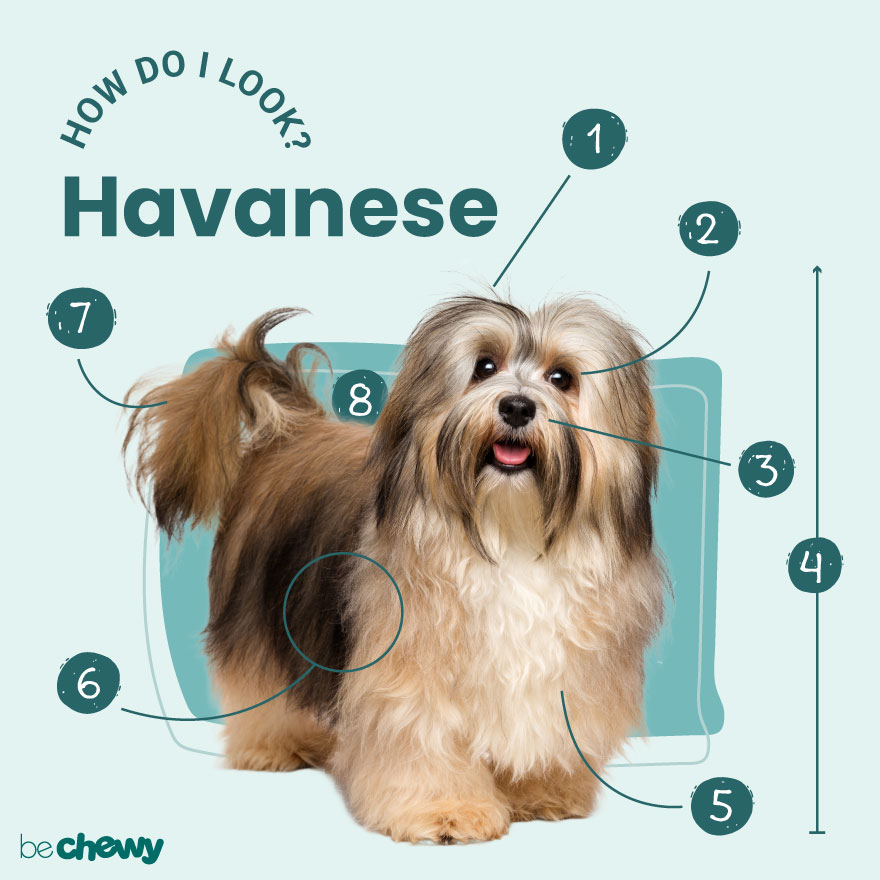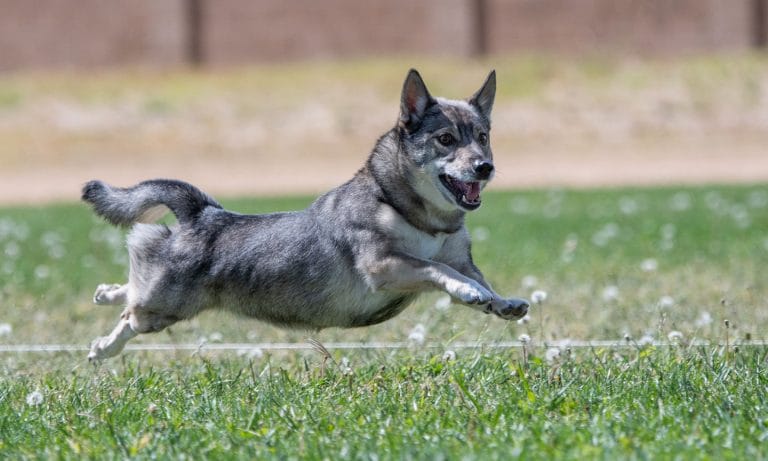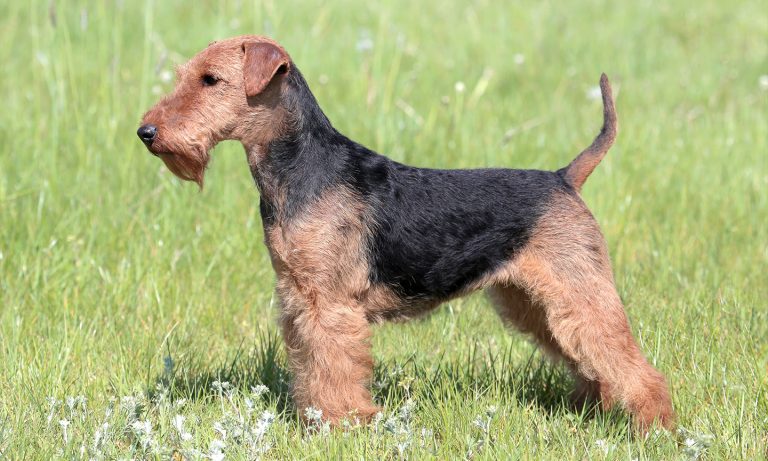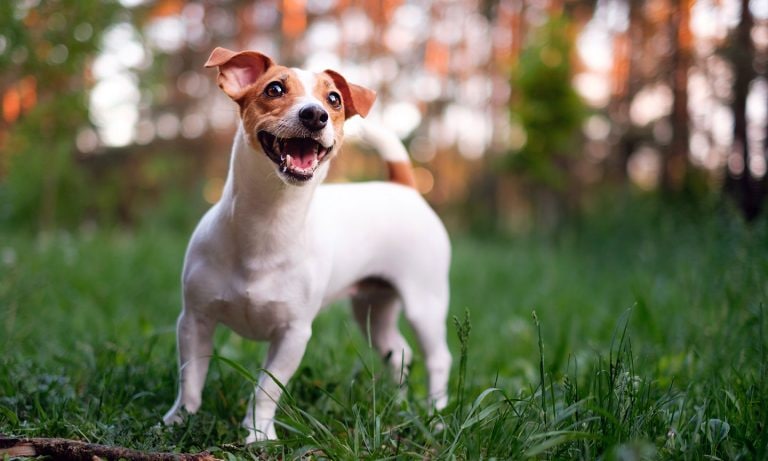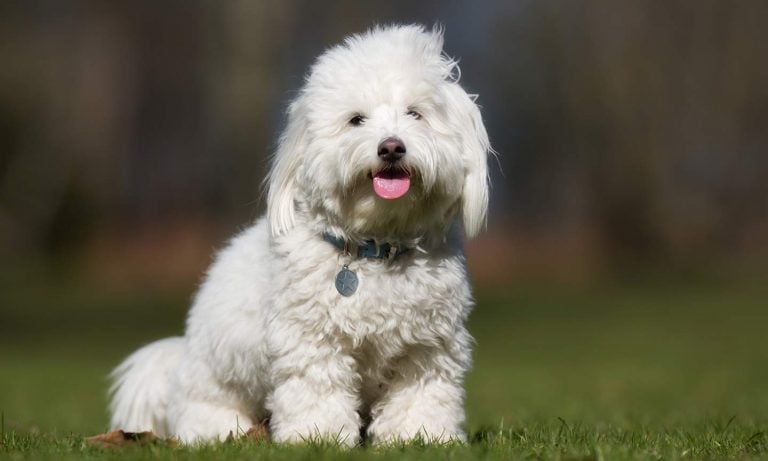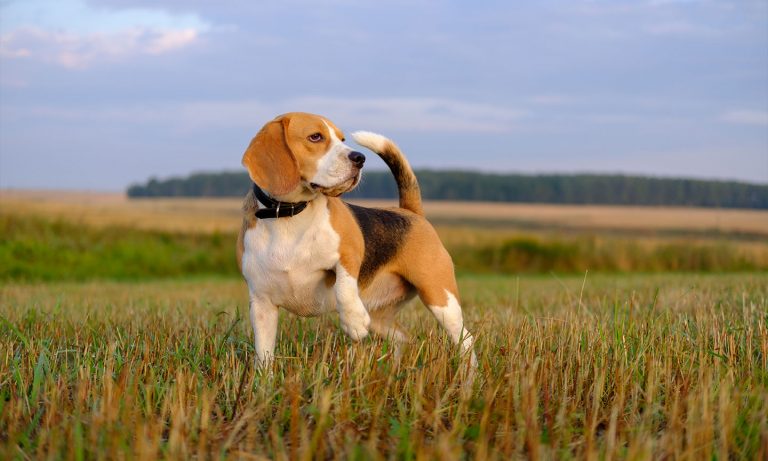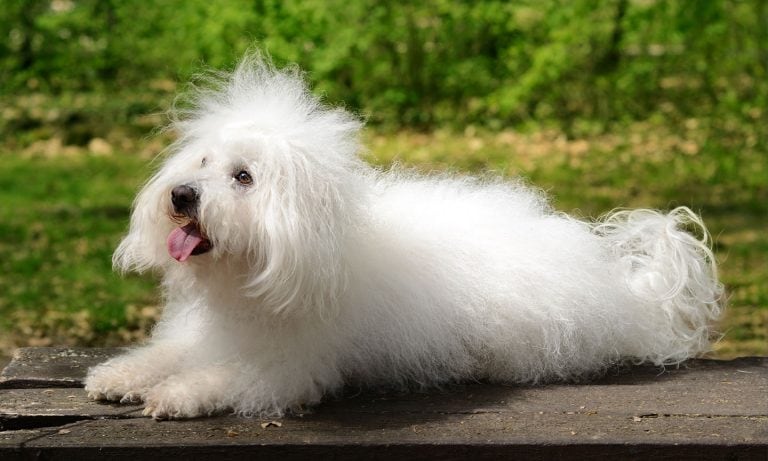Silky hair, smiling eyes, outgoing personality. Sound like what you’re looking for in a potential partner? Then ditch the dating app—we’ve got a match for you. Havanese are intelligent and adaptable pups who love to meet new people, and they make friends everywhere they go. Outgoing? Check. Their long, flowing hair is one of their most standout physical features. You won’t be able to help yourself from running your fingers through it (and even look forward to brushing them). Silky hair? Check. And their warm brown eyes reveal their friendly spirit. Smiling eyes? Check. They truly are the whole package.
Breed Snapshot
Temperament:
BrightOutgoingAmusingCoat Color:
WhiteBlackBlack BrindleChocolateCreamFawnGoldGold BrindleGold SableRedRed SableRed BrindleSilverSilver BrindleBlack And TanBlack And Silver
Best For
Playful and affectionate dogs, Havanese are great for pet parents who have a lot of time to spend with their Havanese puppy and can provide opportunities for exercise. These pups thrive in any size abode (due to their small size and adaptable nature), as well as homes with kids and other pets.
Havanese Temperament
If you feel that strangers are just friends you haven’t met yet, then you and the Havanese are MFEO (made for each other). These friendly, playful social butterflies can’t help but pick up ten new friends on a three-block walk. They love people, and people can’t help but love their frisky and fun personalities.
Their big personalities belie their small stature, and they give affection in leaps and bounds. They may look dainty with that silky hair and wagging tail, but the small, solidly built Havanese dog keeps up easily when out making the neighborhood rounds. Keeping a spare hostess gift with you at all times may not be a bad idea, as Havanese like to visit with the people they meet. More petting is a primary goal for these affectionate pups, and it’s just impossible to ignore that cuteness factor.
Even with all that attention, your dog’s favorite place is going to be with you. They’ll lie on your lap when you’re relaxing and watching a movie and will even keep you company when you’re folding clothes. (And they won’t judge you for the way you fold your shirts.) And if they happen to be lounging on the floor, it’s guaranteed they’ll be on your feet; you’ve got the best foot warmer in town.
Havanese are intelligent clowns by nature and will find ways to put a smile on your face. They’ll let you know it’s time for a play break when they drop a toy at your feet and give you that look with their head cocked to one side. When they get the zoomies, you better watch out! They’ll tear through the home and use your furniture for parkour. And you’d better hold on to your notepads: Havanese love paper. They’ll hunt for it around your house and may even wait by your printer for what’s coming out. (You’ll never be lying when you say, “My dog ate my homework.”)
Most Havanese dogs have incredible mental competency and are easily trained and eager to learn. (They’ve lived previous lives as circus performers.) Their repertoire of tricks is guaranteed to be crowd-pleasers at your next party. (And you’ll look like a genius for teaching your dog so many tricks—we promise never to tell.)
A major concern for many families is how the dog will interact with kids and other pets. No problems here! When they aren’t chilling with you, your fur baby will love spending time with two and four-legged siblings. They thrive on playing, snuggles and convincing human brothers and sisters to sneak them treats. Just make sure they don’t get too many, or they may end up overweight.
If you value your peace and quiet, you’re in luck. Havanese bark only when they feel a warning is needed or when playing a rousing game of fetch. They aren’t known for biting, so inviting friends over isn’t a problem.
You’ll never feel lonely when your Havanese—and the 15 friends they made on your morning walk—is nearby.
How to Care for a Havanese
Taking care of your Havanese isn’t a round-the-clock job, but it requires a little effort. They need to be brushed and groomed regularly; they should visit the veterinarian yearly for vaccines and a check-up; they need at least basic puppy obedience training; and they require a moderate amount of exercise. In their eyes, each of these tasks is just another chance for them to be with you, their favorite person on the planet.
Havanese Health
Havanese are known as an overall healthy breed. They have a life expectancy of 14-16 years, although they are susceptible to some conditions common in small breeds. Here are a few Havanese health issues to consider and be aware of so you know how best to keep your companion healthy.
- Chondrodysplasia: Havanese are susceptible to a genetic disorder that affects bone and cartilage development. While there is no treatment, genetic screening testing is available, so be sure to ask your breeder.
- Hip Dysplasia and Patellar Luxation: Hip dysplasia is a genetic disease that causes deformities in the hip joint. Patellar luxation is when the kneecaps slip out of place. Both conditions can cause lameness, pain and, ultimately, arthritis. Treatment for both conditions can often include joint supplements, pain medication and, in severe cases, surgery.
- Heart Murmurs: Heart murmurs are diagnosed when your veterinarian hears an irregularity in heart sounds. There are different types and severities of heart murmurs. If your vet hears a murmur, they will most likely refer your pup to a veterinary cardiologist for an echocardiogram (ultrasound of the heart) to get more information about what could be causing it.
- Legg-Calve-Perthes: This is a likely inherited condition where there is degeneration of the ball portion of the hip joint. Symptoms include limping and pain. Diagnosis is typically done through an X-ray, and affected dogs may need surgery.
- Progressive Retinal Atrophy (PRA): This genetic condition can result in a loss of vision for dogs. There is no treatment or cure, but there is a genetic screening test, so be sure to ask your breeder.
Havanese History
The Havanese breed has a fascinating and long history. Havanese dogs first gained favor in Cuba in the 1500s, shortly after the Spanish flag was first raised on the island. That was a lot of dog years ago.
Named after the capitol city of Havana, these pampered pooches were favorites of the wealthy farmers and aristocracy living in the city. Unlike many dogs, Havanese weren’t working dogs; instead, they were originally meant to live a life of luxury and leisure as lapdogs. (And they still are today.)
The dogs traveled from Havana back to Europe as visitors fell in love with Havanese and took them home. They first gained popularity in Spain before gradually becoming known across Europe. They were favorites of Queen Victoria and Charles Dickens. Popular primarily in the royal courts, the dogs became a status symbol prized for how small they were.
The Havanese breed was introduced and became popular in the US during the Cuban revolution. As refugees fled Cuba in the late 1950s, the wealthy brought their Havanese dogs with them. Breeders have since worked diligently to grow and improve the breed, and the Havanese was recognized by the American Kennel Club breed in 1996.
The Havanese breed is part of the Bichon family of dogs. This group shares common ancestors and most are smaller, white dogs. It’s believed that the Havanese ancestors include the Bichon Frise and the Maltese.
Ready to find your perfect Havanese puppy? Check out the lists of reputable breeders and available puppies on the AKC’s website. Puppies from registered AKC breeders are typically priced between $1,800-$2,500. Some puppies may be priced higher or lower depending on champion bloodlines, location and health testing.
A puppy isn’t your only option. If you are looking for an older dog, check out Havanese rescue dogs. You can also search Chewy’s database of adoptable dogs in your area. Whichever you choose, you will find Havanese dogs ready for loving, forever homes.
FAQs
Are Havanese hypoallergenic?
No dogs are 100 percent hypoallergenic, but because the Havanese dog breed sheds very little, they seem to cause less of an allergic reaction in dog allergy sufferers. Always check with your doctor before getting a pet if you have allergies.
Do Havanese bark a lot?
Havanese are not known to bark a lot. They will bark when they need to alert, and sometimes when they are having fun. They may bark more if they are distressed, suffering from separation anxiety or need your help or attention.
Are Havanese good with kids?
Most Havanese dogs are great with kids. They love affection and attention, and kids love the small, silky dogs. As with any dog, it’s important to not only take initial introductions slowly, but also socialize and train your Havanese, and teach children how to properly interact with dogs.
What are the most common Havanese mixes?
- Havanese-Poodle mix (Havapoo)
- Havanese-Shih Tzu mix (Havashu)
- Havanese-Maltese mix (Havamalt)
- Havanese-Yorkie mix (Havashire)
- Havanese-Chihuahua mix (Cheenese)
- Havanese-Schnauzer mix (Schnese)
Note: These are not purebred dogs but mixed breeds.
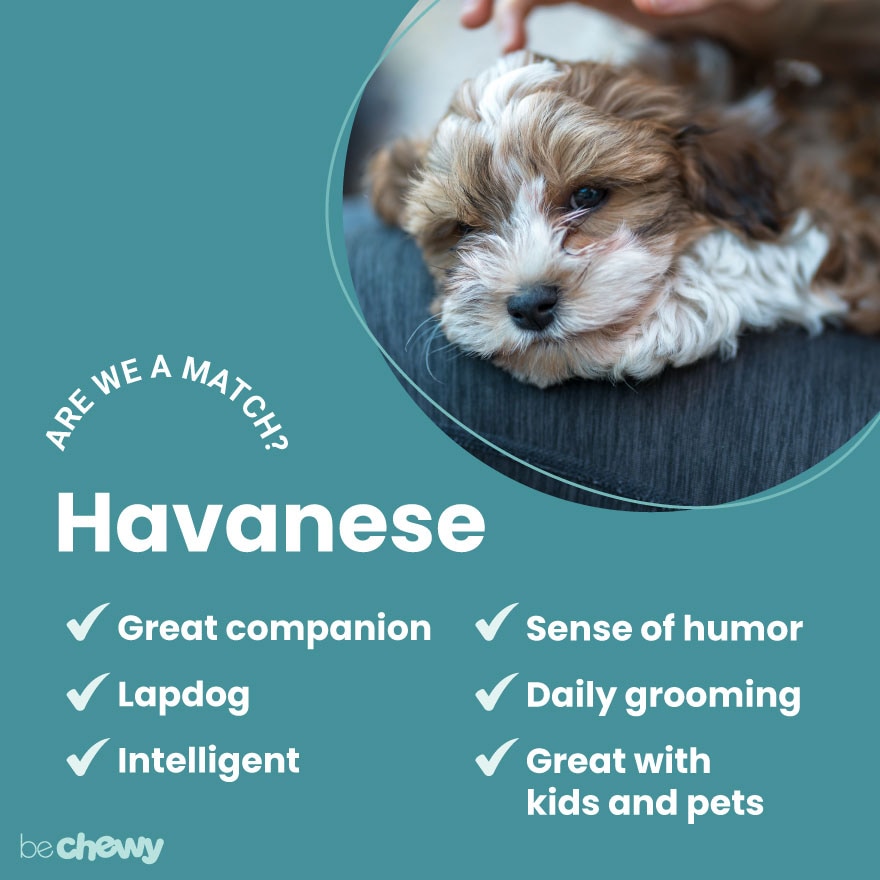
Top Takeaways
Whether you’re a family of one or a family of 10, the Havanese is the ideal companion. Smart, funny, loyal and loving, this people-pleasing pup is ready to roll through the neighborhood with you like the royalty you are, greeting friends and friends-to-be and bringing a smile to everyone they meet.
Expert input provided by veterinarian Dr. Philip Brown, DVM, Animal Care Center, Springfield, Missouri; Kathy Hawkins, trainer at Springfield Missouri Dog Training Club; and Chris Brewer, trainer at Triune Canine Training and Event Center.
Breed characteristic ratings provided by veterinarian Dr. Sarah J. Wooten, DVM, CVJ, a veterinarian at Sheep Draw Veterinary Hospital in Greeley, Colorado; dog trainer and behavior consultant Irith Bloom, CPDT-KSA, CBCC-KA, CDBC, owner of The Sophisticated Dog, LLC, in Los Angeles; and certified animal behavior consultant Amy Shojai, CABC, in Sherman, Texas.
The health content was medically reviewed by Chewy vets.

Search for Adoptable Havaneses Near You
Female Names
- Bella
- Luna
- Coco
- Lucy
- Lola
- Daisy
- Molly
- Maggie
- Rosie
- Sophie
Male Names
- Charlie
- Teddy
- Milo
- Oliver
- Cooper
- Ollie
- Max
- Toby
- Oreo
- Leo
Share:
